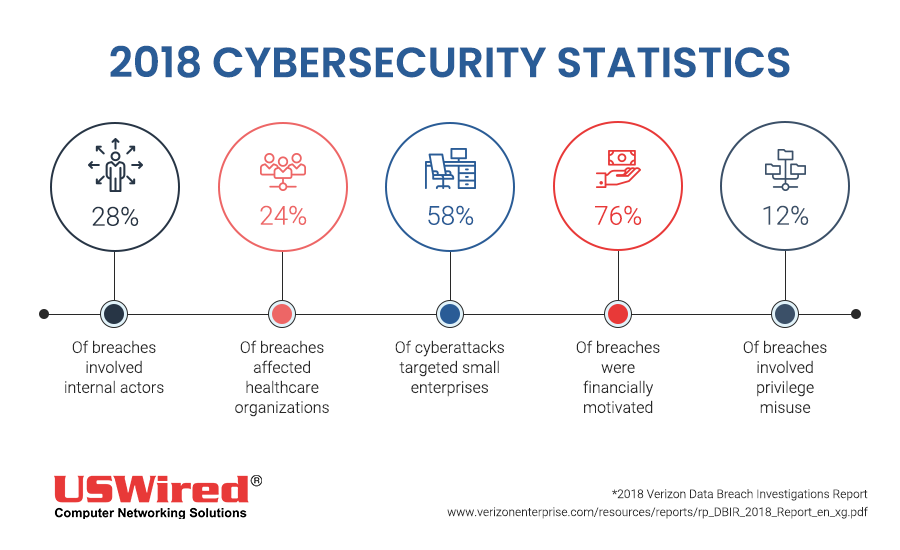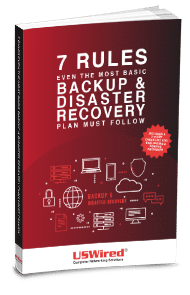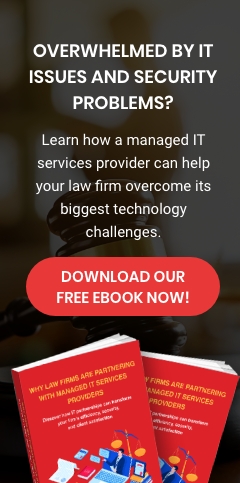It’s important for businesses to always be prepared for unexpected events. Natural and man-made disasters such as earthquakes, storms, and cyberattacks can occur anytime, and a detailed course of action can mitigate the gravity of their effects.
Your disaster recovery strategy should always focus on your data. Losing confidential data and having it fall into the wrong hands could spell disaster for your company. Cybercriminals can use stolen info to gain access to proprietary files, create new accounts and lock you out of your old ones, and make fraudulent transactions. Be it financial losses or a sullied reputation or both, your company could suffer damage that is very difficult to recover from..
Despite this, insurance firm Nationwide revealed that 75% of small businesses don’t have a disaster recovery plan. Moreover, 52% of owners said that it would take at least three months for them to recover from a calamity.
Why this trend? Possible factors might include lack of budget or infrastructure, but the most common reason might be the mindset that small businesses aren’t the targets of cybercriminals, believing that they have nothing of value to be stolen. The opposite is true, however.
According to the 2018 Data Breach Investigations Report by telecommunications company Verizon, 58% of all cyberattacks target small enterprises. While the reward might not be as high as with larger companies, cybercriminals still target small organizations due to their negligence in cybersecurity.
Here are some more surprising disaster recovery statistics that business owners need to know:
Hardware failure continues to be a major cause of data loss
According to data by analyst group Dynamic Technologies, hardware failure is the number one problem faced by businesses. It found that, aside from power loss and data corruption, hardware problems are the cause of data loss and unplanned downtime 45% of the time.
Typical businesses store their data on physical hard drives. This may be a no-brainer when it comes to securing information, but when these devices crash, organizations are left scrambling for a way to recover the damaged data as quickly as possible.
If you’re using outdated hardware, it’s ideal to replace it with new equipment that won’t crash frequently. This might sound like a huge investment especially for small businesses, but it’s an investment that will pay a thousandfold when your data is secured.
In a world where everything is interconnected, you can also turn to the internet to safeguard the integrity of your data. You can make use of cloud storage options that save your data on the internet in multiple servers located around the globe. This way, if a disaster happens, your files can still be recovered from another location, thus eliminating the possibility of data loss.
Managed IT services providers (MSPs) such as USWired provides cloud hosting services that offer reliable performance and support for your data. The best part is, these services guarantee virtually zero downtime and cost less than paying an in-house staff a full-time salary.
Recovering your data won’t be cheap
When it comes to the costs of data loss, there are two things to consider: direct and indirect costs. The former refers to equipment replacement and downtime, while the latter covers intangible costs such as damage to your reputation and low employee morale.
Direct costs can be computed, and according to research firm Gartner, the average cost of downtime is around $5,600 per minute, equivalent to $300,000 an hour. Indirect costs, meanwhile, don’t have any monetary value. However, it can still be damaging for organizations when they’re forced to shut down due to a drop in client and employee trust.
Download our free eBook!
Read our free eBook: 7 Rules Even the Most Basic Backup & Disaster Recovery Plan MUST Follow and find out how to have a solid backup & disaster recovery plan
A silver lining for disaster recovery
It’s not all bad news when it comes to disaster recovery, thankfully. According to research by Clutch, 78% of small businesses will back up their data to the cloud by 2020. Of those small organizations already using the technology, 84% use online and on-site backups, 68% test their backup on a weekly and monthly basis, and 49% back up data to the cloud daily.
All things considered, disaster recovery is one aspect of your company that you should never think twice about. Your data will always be the most important part of your business, and ensuring that they’re safe from any issues is non-negotiable. Partnering with an MSP can go a long way, but educating your employees about staying safe online and doing their part in data security will also help secure your firm.
Don’t wait for disaster to happen. USWired offers a cloud hosting service that provides your organization with reliable and proactive system security that’s easily scalable according to your needs. Call us today to find out more.



